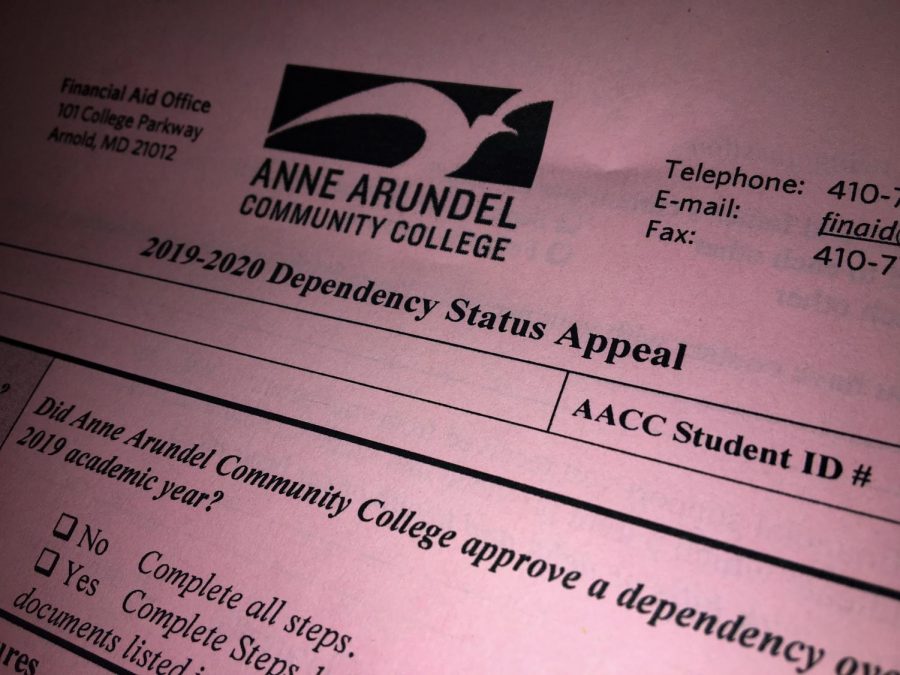FAFSA proposal to help if parents unavailable
AACC students who are estranged from their parents may be able to fill out FAFSA quicker if Congress passes a new bill.
April 1, 2019
Students applying for financial aid who aren’t able to get access to their parents’ tax returns will have an easier time qualifying if Congress passes a proposed law.
U.S. senators Ben Cardin and Chris Van Hollen, both Maryland Democrats, introduced the FAFSA Fairness Act of 2019 to the House Committee on Education and Labor on Feb. 7.
This act would apply to students whose parents are unavailable because, for example, they are deceased, in jail, have abandoned the applicant or have forced the child to escape abuse.
The law would give each college’s administrators the authority to decide, on a case-by-case basis, which students deserve special treatment because of their circumstances.
“This is designed to help students where the parent is really absent,” Van Hollen said. “The judgment does ultimately come down to the schools as to whether or not you meet the criteria.”
“Historically, community colleges work to meet the needs of first-generation and low-income students,” Cardin said. “Our community colleges [are] partners in eliminating barriers that our most vulnerable students face when working towards their college degree.”
He added: “For the students who have faced difficult and abusive life circumstances that leave them unable to obtain their parents’ financial data, we believe that they should be able to follow the same process as their peers to apply for federal student aid.”
Under the proposal, students would file as “provisionally independent,” which means the college could immediately calculate their financial aid and give them an estimated amount of money they could expect once their applications are approved.
The law also would allow financial aid administrators to tell whether they would qualify for federal funds even before they fill out the Free Application for Federal Student Aid, or FAFSA.
Without that information, some students assumed they wouldn’t be eligible for any aid and gave up on pursuing the FAFSA and their educations, AACC’s Director of Financial Aid Tara Carew said.
“There are special provisions that students have to follow if their parents aren’t available,” Van Hollen said. “Under the current process, that is such a burdensome and cumbersome process that a lot of those students, who are already in a very difficult position, don’t apply [for the FAFSA].”
“If you can see what your projected or anticipated aid would be, it gives you incentive to be able to say, ‘Oh, you know, I can get this appeal approved and I could qualify for the Pell Grant’ … to see the light at the end of the tunnel before going through the [FAFSA] process,” Carew said.












